by Fitz | May 8, 2016 | Essays, Journal
Very jealous today of all the folks I see spending time with their respective moms–and sad for those who can’t and for those whose wives were taken from their families too early in life…
This is my remmebrance of my “mum” who died several years ago.
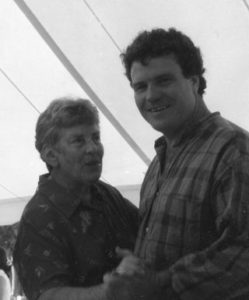 I ran into an old friend one day after visiting my mom, who was entering what we all knew were her last days or weeks. Struggling for words to express his sympathy for both myself and my mom’s condition, he said, “Mary is not the mother you knew.” I guess in a way, none of us are ever that person whom we knew. Every day is a new contract with a life that simply—and often painfully and poignantly—comes with new terms and conditions that we have no choice but to accept and embrace with dignity, grace, and wisdom. No matter what life threw at mom, she accepted the terms put before her; and the world—and especially our world—was always a better, more loving, and infinitely richer place because of her; and though at the end she was not the person we remembered, she was always the mother we had, and she somehow managed to make everyone around her feel “mothered” right up until the very end.
I ran into an old friend one day after visiting my mom, who was entering what we all knew were her last days or weeks. Struggling for words to express his sympathy for both myself and my mom’s condition, he said, “Mary is not the mother you knew.” I guess in a way, none of us are ever that person whom we knew. Every day is a new contract with a life that simply—and often painfully and poignantly—comes with new terms and conditions that we have no choice but to accept and embrace with dignity, grace, and wisdom. No matter what life threw at mom, she accepted the terms put before her; and the world—and especially our world—was always a better, more loving, and infinitely richer place because of her; and though at the end she was not the person we remembered, she was always the mother we had, and she somehow managed to make everyone around her feel “mothered” right up until the very end.
She hated whenever I called her “Ma,” but, still, she was always “Ma Fitz” to anyone whose own mother was displaced by time, fate or distance. Even the toughest kids in town knew that as soon as any one of them placed a foot on Fitz territory, the rules of Ma Fitz were all that mattered. But, along with those rules came a woman who accepted anyone, anytime into a house already crammed with kids. We learned early and often that it is not the size of the house that matters, but rather, the size of the door—and like loading a dishwasher—there’s always room for one more.
On a Sunday night, some months ago, I walked into my mother’s room at Concord Park, and without thinking, I went straight to the refrigerator. It’s the same mechanical motion I’ve made every day that I’ve walked into her kitchen since I was a little kid—no matter where she lived. I didn’t even know what it was I was looking for, but I knew that mom had to have something in there for me.
Maybe I am hungry to know that Ma will still feed me. The refrigerator from my childhood—bursting with unending trips to Stop and Shop, Triple A, and Star Market is now a small countertop square in the corner of an uncluttered kitchenette. I open it and stare at the small bottle of ginger-ale, the pint of milk, the dainty plate of cookies and the half a sandwich, and drift back into the memories that persist and gnaw and flow out of that small space.
I still expect to see gobs of grapes, oranges, and apples; chocolate pudding, leftover tuna casseroles and Shepard’s pie, Appian way pizza, kool-aid, custard, baloney; and eggs: pickled, deviled, scrambled, and boiled; and potatoes: fried, mashed, hashed and rehashed in the unending evolution of necessity. But sometimes, when times were harder (times that were never actually mentioned but were full of green stamps and coupons) mom made potato buds: dry flakes with carnation instant milk and two tablespoons of butter, mixed into a pudding-like potato that was a perfect place to hide the peas, beets, boiled onions, liver, cod and other scourges of an Irish Catholic childhood; food that kept us at the table long after dinner, stubbornly poking and dabbing the edges with tears and a fork until someone—and rarely mum—relented in their stubbornness. And when we were really young and the milkman came everyday, we pulled out the whole milk with cream tops in glass bottles with paper caps; EJ, our almost epic father, would paw the top shut and shake the heavy cream back into the milk itself, exhorting us to imitate his practiced perfection—which none of us could do—and someone always spilled the milk on the cracked formica table and vinyl chairs, and he always screamed, “Every night! Somebody has to spill the milk every single night!”
And then after the mopping rags, dinner resumed in the chaotic recollections of the day; fights about whose night it was to do the dishes and who didn’t mow around the trees, who got seconds last night, and who got a C in penmanship, and who shouldn’t get two hydrox cookies for dessert because they weren’t smart enough to hide their peas in the potato buds!
And we sat in the same seats: I had little sister Annie on my right, always holding on to her waitress pad from Friendliest that she used to take our drink orders and would nod her head and say “thank you very much” and move on to the next of us; and little brother Tommy on my left who we could always get to laugh (and eventually spill his milk) even when he had no clue why he was laughing; and my big sisters staring across from me: Eileen, with her studious perfection and black and white perception of right and wrong, who for some reason Mum put in charge of making sure my bed was made and my room was clean—and who fined me a quarter when it wasn’t, but still I took her to Russo’s on my birthday when I could only bring my best friend; Mary Ellen with her CCHS sweatshirts and unending commentary on everything good, bad, cute or not under the sun—a gift she keeps to this day, and who came to every game I ever played and made the scrapbooks I would never make; and Patty, so old I hardly knew her, until she died so young that I can’t forget her….
And in the overstuffed kitchen, dad’s back was crunched almost against the basement door, and mom was pressed against the dining room wall—the room with the walnut table and eight matching chairs that we never seemed to use—like a museum stuffed with bone china and silverware that we polished every Christmas, bought, I’m sure with the green stamps and coupons. We could live without the dining room; but we lived and grew in the kitchen. We gathered in that kitchen everyday like chattering birds drawn to a stubbled and time-worn field—and out of that space we were reborn each day.
Every morning mom poured the Wheaties, boiled the oatmeal and cut the grapefruit while we listened to Joe Green in the BZ copter mumbling unintelligible warnings about tie-ups at the Alewife circle and sang along to “Watch me wallabies feed, mates, watch me wallabies feed.” Dad would grab his briefcase and we’d all try to be the first one to scream “Bye dad!” in a cacophony of competition, and, as if on cue, mom would sneak behind me and hold my head while I jerked convulsively, and she’d rub a warm wet cloth across my face and straighten my clip on tie and try to force down my cowlick and pick at my ears until I was fit to be presented to Sister Jean Beatrice—and, by some sort of convoluted math, to God himself. And then she’d sit in her chair, quietly, and write her own mother a letter.
Marion Fahey, 84 John St. Dalton MA. Every single day she’d write her mother a letter.
One of us could get the letter paper; and one of us could get the envelope; one of us would get to lick the stamp; one of us could put it on the letter; one of us could carry it to the mailbox, and the last one could lift up the metal flag. I never knew it was a ritual of perfection—a continual journey into the heart of the mystic love of family. You never know, but still, you remember.
Over the past few years, Alzheimer’s has slowly chipped away at the edges of her memory, but never to the point where she lost any of her true self. One day she’d remind me that it’s my childhood friend Danny Gannon’s birthday, and on the next day she’d ask me who my pretty children are…and like polite grandkids they would dutifully tell her their names once again, except for Tommy: “You know me Grandma, I’m Tommy!” and who’d crawl on her lap and ask for a kiss—“Not that kind of kiss—a chocolate kiss.” And she’d smile and say, “Of course, I know you. You’re Tommy.”
I’d go to see her and we’d look at ads for cars in the Boston Globe. She wanted a Toyota. “Your father loved his Toyota.” I smile to her, “That’s because Toyotas were cheap, and dad loved cheap.” It didn’t matter that she would never drive again. It didn’t matter that we would have the same conversation the next day. It didn’t matter that soon she might slip into a cloud of unknowing. It only mattered that she was there and in the magic and mysterious majesty of memory, and she will always be here.
We all remember mom, Mary, Mrs Fitz, and Ma Fitz in our own ways, and I know all of you remember her for what she did “for” you. Maybe she knit you a sweater, or sewed a first communion dress for you, or showed you how to quilt or bake or fry or can, or freeze. Maybe she made you dinner, washed your clothes, gave you a room for a few days, weeks, or months or a place to come on Christmas, Easter, Thanksgiving, or any common night when you were hungry for love and acceptance. Maybe she played bridge with you, or took you to White’s Pond, Stinson Lake, Tenney, Waterville or Cannon, or took you to dinner at Russo’s, Friendlies or Jimmies, or drove one or two or three hundred miles to be with you on a special day—or on any given day—when life was too special to go uncelebrated or too crushing to be alone. Maybe she taught you how to be a mother, a friend, a wife, or simply a good person. Maybe she let you marry one of her children and then loved you more than her own kids. Maybe she taught you how to never yell, but just give you that look. (Only Patty seemed to have mastered that look…The rest of us find it easier to yell.) It is easier to remember Mrs. Fitz than to be like Mrs. Fitz.
Sometimes God takes one to touch and teach many. Today is that day. God has blessed us by putting mum into our lives, and though our memories grow from different soils in different gardens, we live today through a shared memory.
Nurture those memories. Hold them. Cherish them.
Thanks. Mum always loved a party.
by Fitz | Apr 16, 2016 | Essays, Journal
I wonder what the years have really taught me about writing and music. I have gotten so used to preaching and teaching that I am a bit looped by the thought of writing—as in how I wrote before (or how I will claim I wrote) before settling into this somewhat comfortable and safe life I have—a life that is as rare and fine as life can be, but I feel myself getting that itch to rediscover who I am as a writer. poet, and songwriter. I need to know there is a next time around and that this is that time.
In many ways, writing is an addiction for me: I come outside to my porch, or settle in on the couch by the fire, and I write—but mostly essays, journals (such as these), long preambles to assignments, and reflections that are short enough to be interesting to me, but not so long as I really need to think about what I write
And I have my book, The Three Rivers Anthology, that I can curate with a few more insertions, and I have my beloved websites, several somewhat messy (but getting less messy) sites that at least prove that I exist as a writer and a performer and a low-level scholar of how to write well.
But to write a new poem with any level of depth or breadth is…hard.
To write a song that is more meaningful than clever is…hard. I feel my age in the same way as when I jog down the road or climb on the exercise bike—like it is a necessary but cumbersome evil, and any excuse is a good excuse.
But I need to say I am working on a new folio ( I hate the term EP) of songs and not just a rehashing and reconstructing of song fragments from old journals. More so, I need to “know” that I am working on a new folio of songs. Damn good songs. Songs that reflect whatever wizened and vine-riped thoughts and ideas I still have within me.
Funny though: I really don’t care whether or not people actually like the songs as much as I need to like them. If it becomes a desperate search and a losing battle, then so will my songs be about desperation and loss.
Though I suspect the songs will be somewhat decent, and I can always force a poem to fruition—if I have the time; if I make the time.
More than likely it will mean stealing time and carving it not out of the day, but out of myself. I will need to shed more of my teacher shell (and it is, often, a shell, not a conviction or a mandate—though teaching seems to be the way I will have to live for some more years. Fenn School is good to me and I am good to it, and unlike Odysseus I am not ready to cut my ties to luscious nymph Calypso!).
I am not ready to leave my Thursday nights at the Colonial Inn, for it is my solace and my platform and my way of keeping music alive in me and sharing through me and remembering through me.
I am not ready to reimagine how or why I live. I am BLESSED beyond imagination at my good fortune on this earth. My family—Denise and kids and friends—will always trump any moment in time and place. I need them and me to know and feel and truly experience that my love is unalterable and immutable in the face of any vicissitudes.
There is no Fate in my love for who I am, nor will be a marionette in a choreographed dance—unless it be that I am fated to joy, simplicity and a genuine humility to my Graces.
I just want to tap into what is left in me and to give lasting and ineffable form to the moiling juices of my heart and soul and being.
So please, be with me, humor me and share yourself with me on this journey.
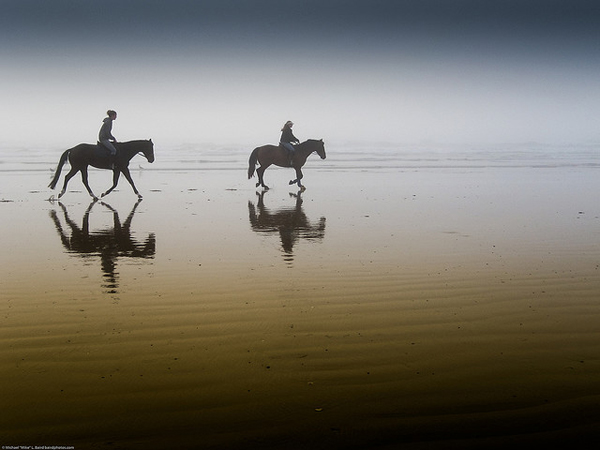
by Fitz | Apr 9, 2016 | Essays, Journal
A lot of things in life fall short of the mark, but thoughtfulness has never let me down. For some forty years I have faithfully kept journals of the wanderings of my mind—most of which is lost in some way or another, but the effect hangs on like a sailor clinging to a piece of flotsam: it proves to me that I am real and not lost; it creates substance out of what might otherwise be ephemeral ether lost to the vagaries of procrastinated time. In the meandering evolution of my words set to page is left a lingering mark etched into a marble wall of time that can never be sandblasted clean.
Simple reminders that I am what I am.
It is almost frightening to know that who I am is freighted with an urgency to continually change what I am. The irony is in how tightly I must shut my eyes to see clearly into myself. Stripped bare I am a meagre and skeletal portrait of a man—a shaky scaffold of dreams and desires connected inextricably to the pulsing aorta of reality.
Life. Ineffable life.
But it can not be any other way.
I am doomed and emboldened to speak the voice that barks and sings, laments and praises, and shouts and drones the inexcusable and intransigent me in glorious triumph and ignominious defeat. I need to see my reflection in stark contrasts: I need a barometric gauge to sense and measure the depth of the coming storms or easy weather. I need to know when to set anchor or set sail.
And all I have is words to guide me.
Words and love are all that is real to me, but it is only words that I question. I do not question my love or unequivocal devotion to Denise or our children or the eclectic diaspora of extended family. I only struggle with the constructs I create. I question my words because they are not created for me—they are created for you; hence, they are weighted by all that preys upon me: vanity, desire and a mania for a purposeful and meaningful life—the very stating of which is almost an anathema, a self-aggrandizing denial and abnegation of human empathy!
Stripped of words I can only utter and respond to what is palpably real and connected to me. I protect my own in spite of all else. Viciously so. And that is good and right and is built into me, and it is unerringly built into me by the hands of a creator beyond my understanding, enough so that I question my reflection on any still waters I see. Beyond faith. Beyond the myopia of circumstance. Beyond anything we share. I am left with words.
It simply is.
I write because I know no other way, but I have no illusions that my path is leading to a greater source. I am constantly humbled by the misdirections I follow. I am less of a guide than a foot soldier commandeered to go foot-first into the minefields of a greater field laced with weed and flower. My solace is that I am still alive—that somehow I have navigated well enough to be where I am—safe, secure, and almost retired into a golden age. I covet my joy like a child his or her inheritance of perpetual splendor. I cannot count or measure my blessings; I can only pass them on.
So I close my eyes at night and expect an infinite dawn.
And so can you.
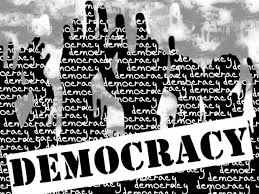
by Fitz | Mar 18, 2016 | Essays, Journal
I wonder why Trump is not flipping me out? I wonder if there is some bigoted, ignorant and right-wing element that lurks inside this folk-singing, poem writing, neo-socialist shell of mine.
Maybe it is not that hard for me to make the empathetic reach to feel at least some of the heartbeat of angst, alienation, and pissed-offedness of a broader than we think sub-segment of society that is—or at least feels it is— being intellectually belittled by the righteous arrogance and condemnations of people who know better, who are not white trash racists and who occupy a moral high ground that they preach from with smug self-aggrandizement.
Yes! Trump is a horrible choice for president. He is, to my mind at least, a pompous, opportunistic ass who is rife with contradictions and simplistic approaches to befuddling issues, BUT there is no denying he is also a populist voice who provides an outlet—and now a platform—for those who don’t feel represented by the political establishments (left and right) or the omnipresent media and who don’t feel heard in this present moiled and muddied times.
We will not win over the votes of “Trump Nation” by a constant drumbeat of belittling diatribes that only serve to fortify the “wall” they are building around themselves. All of us are prey to misguided ideologies, and I am convinced that Trump’s ideology is especially misguided, even dangerous, but in the end, we are an amazing country of many voices, many points of view and a thoughtfulness that is often astounding. We are, however, sorry listeners whose first instinct is to tribalize into competing factions.
There is no reason to panic. Trump is not going to derail our nation, even if he wins the nomination or even if he wins the presidency. Life, democracy and our nation will move ahead, and perhaps even be better and stronger for it. This a time for dialogue with each other—and dialogue needs ears that hear, and hearts that feel and try to understand, not simply mouths that roar.
This is an opportunity for the greatness of democracy to act in an enlightened, passionate and compassionate way and to look at our own personal flaws and biases as deeply as we look at those of our perceived enemies , who are, in reality our brothers and sisters—a family joined at the hips in this noble experiment that is America.
And we should never turn our backs to family…
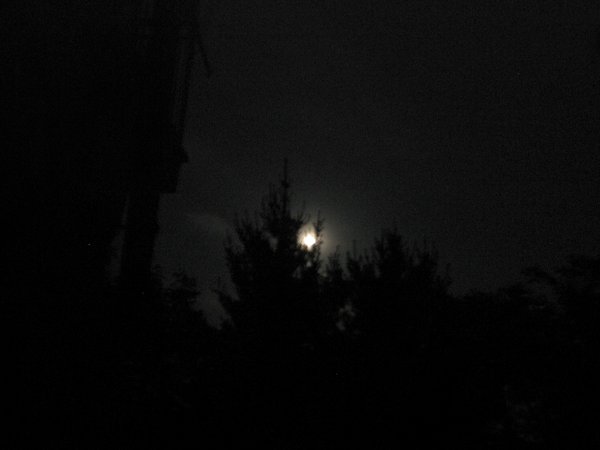
by Fitz | Dec 25, 2015 | Essays, Journal
I am not sure what Christmas really is anymore. I am almost afraid to think of what Christians are going through in the lands of the original Christian faith. By dint of place and time, I grew up in the Catholic faith, and try as I might, I can’t ever escape the roots of my Christian faith—though I am never absolutely convinced it is faith. It is, however, my means to a more spiritual life. I cannot kneel down in a church and not feel humbled by my “humanness.” It is the only place where I am completely contrite and real and searching.
I would love for more certainty. I would love for my faith to rule out all others, if only to be sure of my way through the Skyllian straits of life where every decision is based on uncertainty. I live within the weakness and greyer shades of heart and intellect mixed with an enduring hope that God works beyond the limits of my understanding—for what I know is always overshadowed by what I do not know. It is my restless soul– a battle that does not rage, but simmers beneath my surface, and what simmers is an overflowing broth of searching and acceptance.
A true God could expect nothing less.
My kids—all seven of them—gathered on couches and chairs around the TV last night and watched “Elf” together. I stood (yes, stood) watching them sprawled amongst each other laughing and simply being the family they are and was astonished that they are the fruit of mine and Denise’s creation. I did not need a re-reading of Genesis or a prayerful recollection of the Gospel of Mathew to know that we are more than bits of atoms and amino acids. I did not need anything more than the tears that streamed out of the depth of a magnificent and overwhelming grace and gratitude to accept the paradigm of a continued rebirthing of life and purpose.
The paltry presents under our tree are simply seeds—reminders of an enduring commitment to what we started as a family some twenty or more years ago, a nano second and molecule of time, that makes everything—everything!—as real and palpable as faith can be. It is our faith, in all of its myopic and blessed beauty! It is not a refutation of other faiths or a stubborn clinging to tradition; it is just who we are and what we aspire to be embedded in the culture of our lives—an instrument of God playing out a unique and enduring song that we sing with whomever is close at hand, regardless of the chorus we sing with. It is our collective soul that sings and rings of possibility—and within that myriad of possibilities are those chances we can’t afford to let slip by.
But they do slip by.
The animosity of righteousness blurs the boundary of our universal human decency, and so the quest to be right overrules the common sense of enlightened acceptance of differences. Here it is a fairly benign bigotry and self-centric claims of higher understanding above a more common ignorance—though it seldom really is. In the Holy land it is a bitter dogfight won or lost in brutality, subjugation and indifference to the human cost. We drop bombs and calculate in the cruel calculus of war what is acceptable loss. The warring factions in the Middle East brings a closer look at an equal depravity that seemingly knows no bounds.
Watching “Elf,” a Hollywood movie by any measure, I was struck by the ending. Nothing survives without a common song sung in common spirit and a belief in the unbelievable. The “reality” of Santa Claus in our home is never a point of discussion. There is no finite point of belief or disbelief. There is no age for our children that demarcates the real from the unreal. Santa is not a bringer of toys. He is the clarion song of reason in a world that is losing its reason. In the panoply of faith, Santa is an adjunct of Christian faith enacted in an enduring way, and while manipulated, distorted and blasphemed by commercialism, he still retains a power that we cling to because we have to believe and any diminishing of that faith diminishes the promise of a humane humanity.
Perhaps Santa is showing us that the giving of gifts supersedes the receiving of gifts, and all any of us can do is to give what we are able to give, and the larger that circle of giving, the larger the effect on the world. There is no true resolution in the dropping of bombs, the massacres of people of a particular faith or self-styled recitations of myopic arrogance. Herds of people are culled from the planet by the innocuous circumstances of fate.
Christmas is an action more than a belief. It is not just some enduring tradition perpetuated by ignorance. It is a stoppage in time, a resetting of the clock to a more infinite time, one that only God seems to understand, and if we don’t stop, the current reality will not stop and the tailspins of history will spiral in devolution and degradation in a return to a baseness that deflates and kills the promise of free will, which, in the end, is all we really have.
If you do not believe in Christmas, at least believe in the promise.
It is a reasonable start…
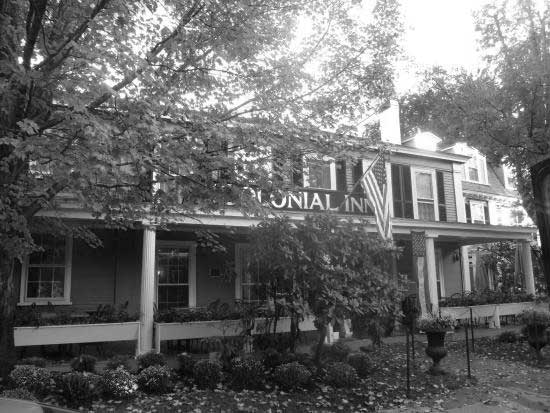
by Fitz | Dec 17, 2015 | Essays, Journal
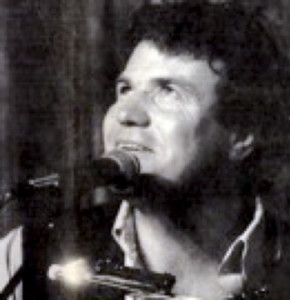 I realized that in all my years of writing and journal keeping, I seldom, if ever, write about “The Inn,” which is and has been, the biggest and most enduring constant in my life for the past thirty plus years. Every Thursday night I load up my car, truck, bus or whatever I happen to be driving at the time with my guitar, amps and broken-down paraphernalia of a small-potato folksinger, and I head to The Colonial Inn in Concord MA and take up my stool in the corner of the Village Forge Pub, and I start to sing–sometimes non-stop for several hours and sometimes with long and friendly breaks thrown in to meet up with old friends or let someone else on stage–almost always some musician with better chops than mine. I can honestly say that have never had a bad night. I’ve had tough nights with indifferent crowds, no crowds or loud crowds, but something always happens to “redeem the night,” and I never drive home feeling eternity has in any sense been wounded by the night.
I realized that in all my years of writing and journal keeping, I seldom, if ever, write about “The Inn,” which is and has been, the biggest and most enduring constant in my life for the past thirty plus years. Every Thursday night I load up my car, truck, bus or whatever I happen to be driving at the time with my guitar, amps and broken-down paraphernalia of a small-potato folksinger, and I head to The Colonial Inn in Concord MA and take up my stool in the corner of the Village Forge Pub, and I start to sing–sometimes non-stop for several hours and sometimes with long and friendly breaks thrown in to meet up with old friends or let someone else on stage–almost always some musician with better chops than mine. I can honestly say that have never had a bad night. I’ve had tough nights with indifferent crowds, no crowds or loud crowds, but something always happens to “redeem the night,” and I never drive home feeling eternity has in any sense been wounded by the night.
It is that redemption that gives me the energy, no matter what my energy really is. Music does not soothe the soul–it energizes life and gives a deeper substance that is as real as any seed planted in a welcome soil.
That soil is you, whoever “you” are.
You might be an old high school buddy who laughs and wonders when the hell I ever started playing guitar. You might be some snowbound or life-bound traveler spending a night at the inn. You might be a business- man or woman pouring over spreadsheets in the corner. You might be a friend or group of friends celebrating life or mourning a death or just reconnecting. You might be a lonely drunk or a bitter drunk or just a drunk searching for a better elixir to get you through the life you have or have created. You might be a family out for a burger and chicken fingers and a round of sodas. You might be my wife Denise who sees and senses and knows everything that is me. You might be one of my kids getting on stage to give the old man a break, or one of my students finally getting the courage to sing to a crowd. You might be the bartender: Joe, Subhas, Leslie, Garret, Nick or Patti and my only crowd.
In every case “you” make “me” possible. And, for the most part, I have stopped arguing with myself, and maybe that is why people keep coming by.
Some years ago a reporter from The Boston Globe asked me what I like to sing, and in a moment of profundity, I responded, “Anything that I know that someone wants to hear.” I have butchered many a song on stage, not because I do not know the song, but because I want to know the song; I want to give it a try, and I learned long ago that if I only sing what I know well, I would have a very short set-list. I’ve learned in the magical process of learning, butchering and relearning that my sets are a constantly evolving paradigm–a flow that emerges in a new way in each moment. Each night is a new night and a new way of seeing the world in front of me. I am blessed by the solipsism of a small bar in my hometown of Concord. It is, for those few hours, my universe, and I am pulled by the gravity of tradition to just keep singing.
Everything simply falls in place.
When I started back in the winter of 1983, I had dreams that this was only a beginning–a way to lay a foundation beneath a singer/songwriter destined for some broader fame. Now I am happy to settle for a larger fame, one that my youth could never dream. Tonight my stage will be as large as it ever was or needs to be. Seth and Hatrack might show–two of my oldest and best friends–and we will settle in with me in a crowded corner. Tom Sheppard might come by with his big bass. Keith might lug in his drum kit. You might even be there.
We will meet new people. We’ll sing and laugh and play and experiment and never imagine defaming the night with a list of songs. The true and palpable magic just happens.
It is a damn fine universe, and all I really need.
 I ran into an old friend one day after visiting my mom, who was entering what we all knew were her last days or weeks. Struggling for words to express his sympathy for both myself and my mom’s condition, he said, “Mary is not the mother you knew.” I guess in a way, none of us are ever that person whom we knew. Every day is a new contract with a life that simply—and often painfully and poignantly—comes with new terms and conditions that we have no choice but to accept and embrace with dignity, grace, and wisdom. No matter what life threw at mom, she accepted the terms put before her; and the world—and especially our world—was always a better, more loving, and infinitely richer place because of her; and though at the end she was not the person we remembered, she was always the mother we had, and she somehow managed to make everyone around her feel “mothered” right up until the very end.
I ran into an old friend one day after visiting my mom, who was entering what we all knew were her last days or weeks. Struggling for words to express his sympathy for both myself and my mom’s condition, he said, “Mary is not the mother you knew.” I guess in a way, none of us are ever that person whom we knew. Every day is a new contract with a life that simply—and often painfully and poignantly—comes with new terms and conditions that we have no choice but to accept and embrace with dignity, grace, and wisdom. No matter what life threw at mom, she accepted the terms put before her; and the world—and especially our world—was always a better, more loving, and infinitely richer place because of her; and though at the end she was not the person we remembered, she was always the mother we had, and she somehow managed to make everyone around her feel “mothered” right up until the very end.





